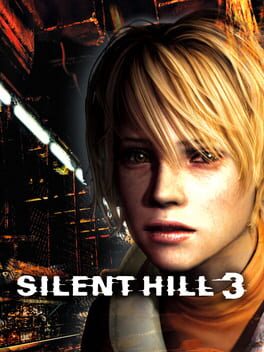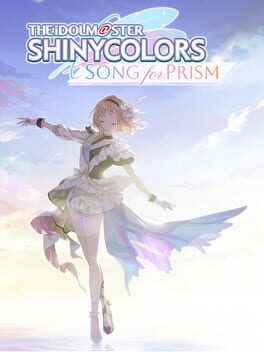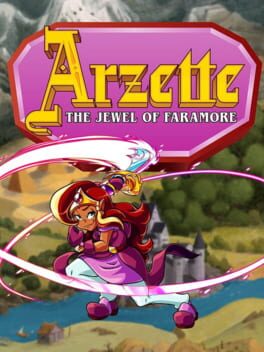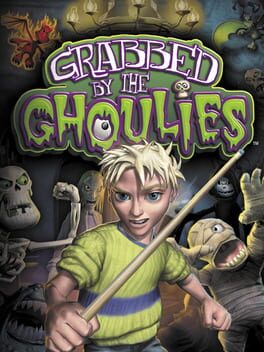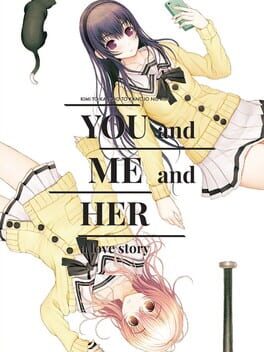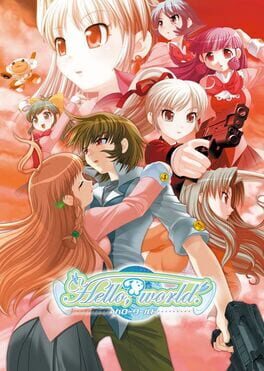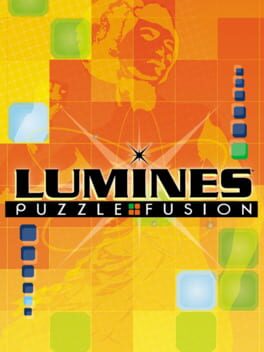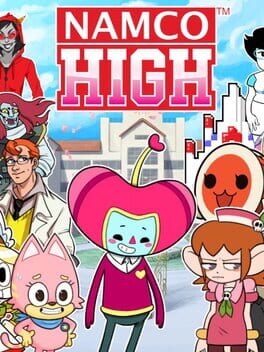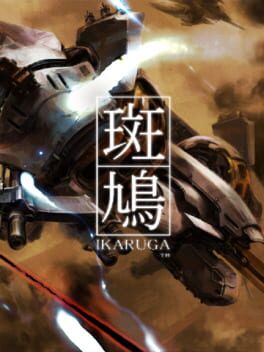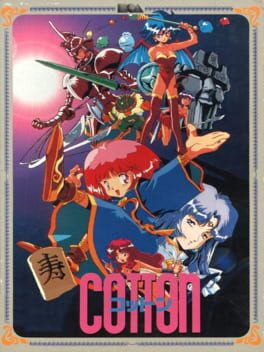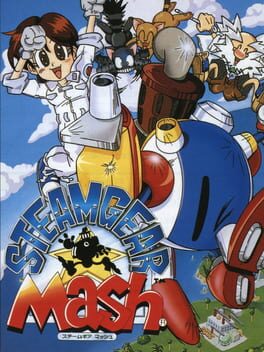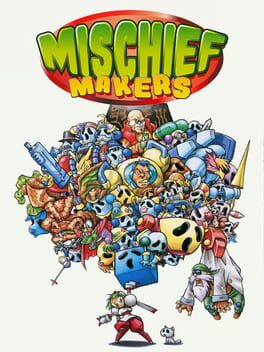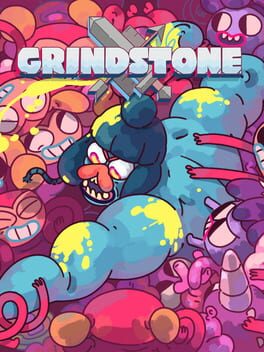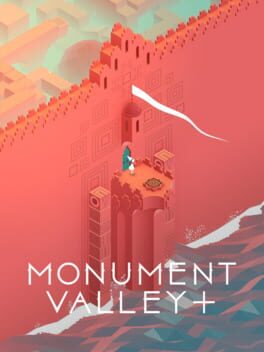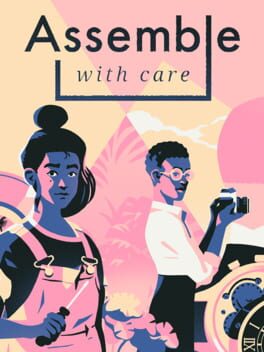shovelware
35 reviews liked by shovelware
Silent Hill 3
2003
i'm only technically speaking on the manga that came alongside the release of this bc the game itself is largely untranslated, but this is seriously such an underrated branch of imas. it's its own distinct thing while also being a expansion of the universe allstars originally put forward with some actual substance behind it. the lack of the self-insert producer + idol/unit relationship also feels fresh here, like i am a harukaP before being a human and the other allstars are all great in their own rights too, but ds framing each idol's story not as their story for you to roleplay within, but those of their story AND the fleshed-out people in their lives too, is something i wish even the core imas games would shift towards a little more.
there's a common thread between the three 876 pro idols as responding to their specific challenges that the industry places on them that really endears me to them too. i am ride or die for both eri, the anxious hikki net idol (the portrayal here might seem sterilized and lacking in self-awareness in a post-riamu world, but that is a good thing in a way lmao) trying to break into the irl world, and ryo, a boy reluctantly marketed as a girl which sounds awful BUT, swear to god, when taken as something resembling a trans guy narrative it is actually kind of good? seeing him again in sidem makes me proud of him with the context of this game. unfortunately ai's scenario is the worst of the three, not so much her fault i dont think--her want to step out of her superstar mother's shadow is a compelling pitch in itself--but more how said mom and her manager are not that great as complementing characters. the ones supporting eri and ryo are awesome though, especially motherfucking REIKO in eri's story who is an ideal every producer should aspire to and one of the best non-idol characters the franchise ever had imo.
idolmaster has so many strange iterations of itself that can be imaginatively connected with each other, even if very obliquely, and forming that puzzle with its characters pulled from these points in time and space makes it special to me. i ascribe alot of this to allstars stuff (the "core" console games from what ive played/seen and relevant manga and anime and whatnot) but dearly stars is absolutely its own interesting part of that quilt. i do partly mean it literally is in that same world, the 765 pro girls appear as established characters whose personalities help color the 876 idols in consistently cool ways. but more importantly i also mean that none of the mobage branches, not even million live which is set in 765, feel like a serious continuation of those kinds of stories, ones of tough business and evolving relationships, like dearly stars is. i wish imas would be seen for that more often.
there's a common thread between the three 876 pro idols as responding to their specific challenges that the industry places on them that really endears me to them too. i am ride or die for both eri, the anxious hikki net idol (the portrayal here might seem sterilized and lacking in self-awareness in a post-riamu world, but that is a good thing in a way lmao) trying to break into the irl world, and ryo, a boy reluctantly marketed as a girl which sounds awful BUT, swear to god, when taken as something resembling a trans guy narrative it is actually kind of good? seeing him again in sidem makes me proud of him with the context of this game. unfortunately ai's scenario is the worst of the three, not so much her fault i dont think--her want to step out of her superstar mother's shadow is a compelling pitch in itself--but more how said mom and her manager are not that great as complementing characters. the ones supporting eri and ryo are awesome though, especially motherfucking REIKO in eri's story who is an ideal every producer should aspire to and one of the best non-idol characters the franchise ever had imo.
idolmaster has so many strange iterations of itself that can be imaginatively connected with each other, even if very obliquely, and forming that puzzle with its characters pulled from these points in time and space makes it special to me. i ascribe alot of this to allstars stuff (the "core" console games from what ive played/seen and relevant manga and anime and whatnot) but dearly stars is absolutely its own interesting part of that quilt. i do partly mean it literally is in that same world, the 765 pro girls appear as established characters whose personalities help color the 876 idols in consistently cool ways. but more importantly i also mean that none of the mobage branches, not even million live which is set in 765, feel like a serious continuation of those kinds of stories, ones of tough business and evolving relationships, like dearly stars is. i wish imas would be seen for that more often.
bought and installed within the first minute of availability, which idk i will ever do for a game again, so feel free to take my autism with a grain of salt. but this is an exceedingly, endlessly lovable piece of art, one which reaffirms just about everything ive grown to believe about art in the first place. the source material , once uncomplicatedly loathed, has been slowly chipped away at by years of collective intimacy...sentences heard as groups of syllables, individual frames of animation immortalized, control quirks forced to be grappled with, npc requests and locations forced to be stored away in memory. this is to say nothing of the dedication it took to create an entire fan remaster, which leads directly into arzette via its lead developer. the result is a combination of nostalgic warmth, a grasp of what is compelling and memorable and striking about those games, and a melancholy stare at the parts that could have been better...a melancholy that could only be sated Through creation.
arzette will be described by many people as "the cdi zeldas but good." having enjoyed the remasters of those games, its more the final step in a process of escalation towards "the cdi zeldas, but there is less in the way of the good." the ultra-memorable quirk and expressiveness of the animation and voice acting are more widely acknowledged as boons now, but arzette also runs with the gorgeous background art, the lush and memorable music, and the miniature zelda experience via an interlocking spread of bite sized metroidvania maps. since its no longer on the cdi, individual screens are much meatier, which does make it slightly longer to recheck places (and rechecking places is what youre doing a Lot in all of these games, but especially this one with its more complex item progression), but it also allows for much more deliberate and satisfying level and encounter design. tricks from the cdi games have their most unpleasant edges sanded off, yet still retain their character. its by any measure an improvement on its inspirations, yet it never once feels judgemental or callous...instead it feels freed and joyus, the result of passion and time and effort and improved technology, chipping away at a dream created almost accidentally by people working with a bad console under tight time pressure.
and more then anything, even with some fun and dry meta jokes, i may not play a game more full of shamelessly earnest love this year. its close proximity with its source material allows it to share a bunch of discoveries its made that its so bubblingly excited about...yet its also an individual and distinctive piece of art carrying with it all the best sensibilities of contemporary metamodern media engagement, a plea to look closely at things that are dismissed and create beauty out of them. its most singular advancements are not its polishing up of rough gameplay ideas, but are in its disarmingly heartfelt and kind story and general tone. i know many people are cynical about pastiche, esp in a world where the same ideas are endlessly recycled over and over...but art should be about the free exchange of ideas, putting them out in the world for other people to respond to, feel about, and create on top of. it certainly cant be dismissed out of hand if it produces results like this even occasionally. hot moose man.
arzette will be described by many people as "the cdi zeldas but good." having enjoyed the remasters of those games, its more the final step in a process of escalation towards "the cdi zeldas, but there is less in the way of the good." the ultra-memorable quirk and expressiveness of the animation and voice acting are more widely acknowledged as boons now, but arzette also runs with the gorgeous background art, the lush and memorable music, and the miniature zelda experience via an interlocking spread of bite sized metroidvania maps. since its no longer on the cdi, individual screens are much meatier, which does make it slightly longer to recheck places (and rechecking places is what youre doing a Lot in all of these games, but especially this one with its more complex item progression), but it also allows for much more deliberate and satisfying level and encounter design. tricks from the cdi games have their most unpleasant edges sanded off, yet still retain their character. its by any measure an improvement on its inspirations, yet it never once feels judgemental or callous...instead it feels freed and joyus, the result of passion and time and effort and improved technology, chipping away at a dream created almost accidentally by people working with a bad console under tight time pressure.
and more then anything, even with some fun and dry meta jokes, i may not play a game more full of shamelessly earnest love this year. its close proximity with its source material allows it to share a bunch of discoveries its made that its so bubblingly excited about...yet its also an individual and distinctive piece of art carrying with it all the best sensibilities of contemporary metamodern media engagement, a plea to look closely at things that are dismissed and create beauty out of them. its most singular advancements are not its polishing up of rough gameplay ideas, but are in its disarmingly heartfelt and kind story and general tone. i know many people are cynical about pastiche, esp in a world where the same ideas are endlessly recycled over and over...but art should be about the free exchange of ideas, putting them out in the world for other people to respond to, feel about, and create on top of. it certainly cant be dismissed out of hand if it produces results like this even occasionally. hot moose man.
Played this with a friend via Rare Replay. We went into it expecting horrible but I at least left with a newfound appreciation of it. It’s not a good game but it’s hilarious with how bad some stuff is and wacky the combat is. Weapon system is neat and the fact you aren’t defenseless without one was something I didn’t expect but appreciated. I don’t recommend a full playthrough though unless you really want to slog through it all.
This review contains spoilers
"Hello, world."
2002
Lumines
2004
mizuguchi's work fascinates me because it often incorporates musical elements without being explicitly rhythmic. the player within his games becomes an equal contributor to the creative tapestry of the soundscape rather than reciting canned phrases or demanding precision. as you move, rotate, place, and destroy blocks throughout this game, your actions directly accent the soundtrack and create new polyrhythmic layers over top of it, leading to a temporally fluid pacing that ebbs and flows with the eye-catching and psychedelic backdrops that each "skin" (or stage) brings. the effect is subtle; auspiciously off-beat inputs will not result in any added sonics, and with enough play this absence becomes noticeable. you unconsciously begin to follow the tempo and create your own grooves over top of the gameplay, and in this way the game manages to gently control your input timing to match up with the moving cursor that destroys your grouped blocks. this cursor slides along in perfect sync with the backing track... and here we come full circle. our button presses, twitches, and excited exhalations form their own accompaniment to the game, and lumines codifies these subliminal impulses to alter the player's behavior without letting them know explicitly. terrific design.
thankfully lumines would be an addictive puzzle game even without the audiovisual spectacle. the goal here is to clear 2x2 single-color block squares made up from two-tone squares you drop to keep them from stacking up to the top of the play area. while it draws heavily from the tetris-esque block puzzler genre, it twists the expected elements in ways that will fascinate and challenge even those who excel at other games of its ilk. the play area is much wider than it is tall, owing to the four-beat phrase that the cursor moves on sweeping the field of finished squares each measure. gravity is also in complete effect at all times, allowing you to easily chunk squares on uneven terrain in order to transform the structure by controlling where the blocks fall. once the idioms become apparent it becomes a classic game of optimization and risk evaluation: should I try to set up this complicated chain that's dependent on good block RNG? do I have a free spot open for this or will I have to set it down and hope for the best? that one column is getting a little high, do I have anything that could potentially break it down? etc. back when I initially played it it was an essential part of my podcast-listening routine, and one that I wouldn't mind pulling out today to kill a little time or occupy my hands.
I originally played the remaster though, and admittedly this version pales a bit in comparison to the content offered in that package. for a less serious player like myself, shuffle mode was an essential way to keep things fresh with a mix of skins from all modes rather than repeating the basic challenge playlist over and over. sadly it's not available here, as you can only choose between an endlessly looping of the basic playlist and single-skin play, the latter of which loses some of the charm of the skin variety. puzzles and the CPU versus mode seem basically identical between the two releases, and neither of which are particularly revelatory in comparison to the primary gameplay, but I do miss the often-perplexing missions within the remaster. in terms of mechanics, only one major difference exists: chain blocks which can wipe all attached blocks of a matching color whether within a square or not must be activated within a square in this original release, while in the remaster they fire off instantaneously upon touching another colored block. as for its ramifications on the design, I find both to be valid expressions of the quick-clear concept, with the original variation favoring more strategic play but only insofar as you care about score. the remaster has a bit of an 8th-gen mobile-esque sheen that will make fans of the starker, more lo-fi original blanch, but at the same time these updates have made the UI more consistent (a debatable positive) and made confusing layouts such as "Please return my CD" much more legible. ymmv on whether the remaster compromises the experience or not, but for me I will likely keep the remaster in my occasional rotation as much as I enjoy the novelty of playing it on a psp.
in the early days of the pandemic I dedicated at least an hour a day to playing the remaster, and replaying through everything now has brought a lot of those memories back to the forefront. while the game is second nature to me now, I still have those glimpses of utter confusion from when I first encountered it and attempted to make sense of its unorthodox characteristics. with a little time and effort, I think anyone can become comfortable with the concepts here and fall in love with the gorgeous and varied soundtrack. a must-play for puzzle fans of all stripes.
thankfully lumines would be an addictive puzzle game even without the audiovisual spectacle. the goal here is to clear 2x2 single-color block squares made up from two-tone squares you drop to keep them from stacking up to the top of the play area. while it draws heavily from the tetris-esque block puzzler genre, it twists the expected elements in ways that will fascinate and challenge even those who excel at other games of its ilk. the play area is much wider than it is tall, owing to the four-beat phrase that the cursor moves on sweeping the field of finished squares each measure. gravity is also in complete effect at all times, allowing you to easily chunk squares on uneven terrain in order to transform the structure by controlling where the blocks fall. once the idioms become apparent it becomes a classic game of optimization and risk evaluation: should I try to set up this complicated chain that's dependent on good block RNG? do I have a free spot open for this or will I have to set it down and hope for the best? that one column is getting a little high, do I have anything that could potentially break it down? etc. back when I initially played it it was an essential part of my podcast-listening routine, and one that I wouldn't mind pulling out today to kill a little time or occupy my hands.
I originally played the remaster though, and admittedly this version pales a bit in comparison to the content offered in that package. for a less serious player like myself, shuffle mode was an essential way to keep things fresh with a mix of skins from all modes rather than repeating the basic challenge playlist over and over. sadly it's not available here, as you can only choose between an endlessly looping of the basic playlist and single-skin play, the latter of which loses some of the charm of the skin variety. puzzles and the CPU versus mode seem basically identical between the two releases, and neither of which are particularly revelatory in comparison to the primary gameplay, but I do miss the often-perplexing missions within the remaster. in terms of mechanics, only one major difference exists: chain blocks which can wipe all attached blocks of a matching color whether within a square or not must be activated within a square in this original release, while in the remaster they fire off instantaneously upon touching another colored block. as for its ramifications on the design, I find both to be valid expressions of the quick-clear concept, with the original variation favoring more strategic play but only insofar as you care about score. the remaster has a bit of an 8th-gen mobile-esque sheen that will make fans of the starker, more lo-fi original blanch, but at the same time these updates have made the UI more consistent (a debatable positive) and made confusing layouts such as "Please return my CD" much more legible. ymmv on whether the remaster compromises the experience or not, but for me I will likely keep the remaster in my occasional rotation as much as I enjoy the novelty of playing it on a psp.
in the early days of the pandemic I dedicated at least an hour a day to playing the remaster, and replaying through everything now has brought a lot of those memories back to the forefront. while the game is second nature to me now, I still have those glimpses of utter confusion from when I first encountered it and attempted to make sense of its unorthodox characteristics. with a little time and effort, I think anyone can become comfortable with the concepts here and fall in love with the gorgeous and varied soundtrack. a must-play for puzzle fans of all stripes.
